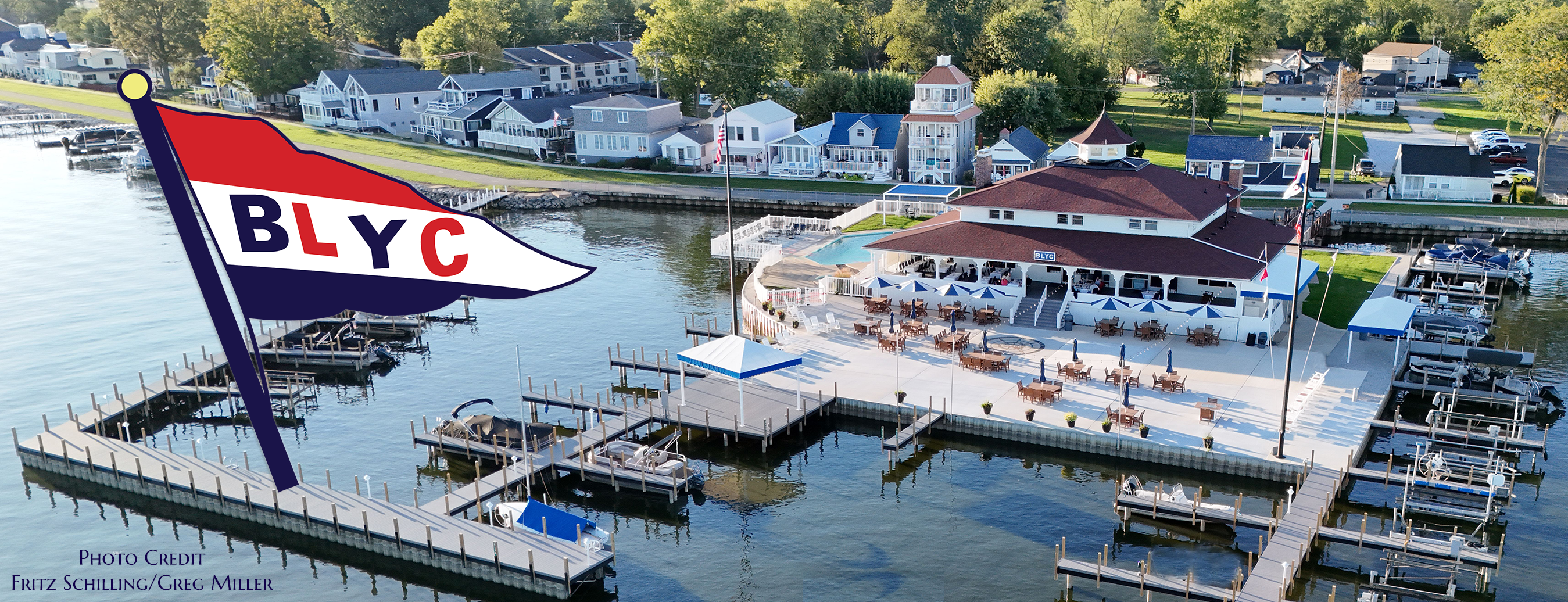– Commodore Steve Harris, BLYC Historian
April, 2020
Reflecting on our current situation, this month we offer the following exerpts from Commodore Armstrong’s 1956 Story of Buckeye Lake. Barely ten years in existence, BLYC faced one of its greatest challenges… WAR!
Only four days following a seemingly unbearable boost in rent, the Club faced its first really seriously challenging prospect. One big, black, solid cloud hung heavily over Buckeye Lake. But such apparition was not peculiar to this area alone. The entire country lay awed in the gloom of that same darkening overcast.
Great black headlines spread across tops of front pages of newspaper “extras” throughout the land on this 6th day of April, 1917. Late that afternoon, President Woodrow Wilson had signed a joint congressional resolution declaring existence of a “state of war” between the United States of America and the Central Powers of Europe. Although war clouds of increasing omen had been hovering over this country for several years, neither the nation nor the Club were in anyway substantially prepared to meet emergencies of this appalling situation.
Patriotically, and of necessity, the Club’s program was geared to the country’s mobilization for and prosecution of hostilities. In some ways this adjustment was more evident during the preparatory than in the combat period of this Great War. In general, its effect on the Club was more deterring than impelling.
From its beginning, BLYC not only had been a man’s club but one largely of younger men. Many of its members were unmarried or had wives but no children. And most of these yachtsmen possessed qualifications required for men in warfare. So, quickly at first and then more gradually, the armed services absorbed a considerable number of the Club’s members, and many others who would have been likely prospects for keeping the Club’s ranks filled. Club members identified with the National Guard soon were encamped with their units. Others enlisted in the services. With registration on June 5th and selection beginning on July 20th, still others were taken away by conscription, then and throughout the duration of the conflict. Some older members of the Club volunteered and were accepted for duties as officers, in and out of combat services, and others, whose duties became involved in war production efforts, found it expedient to curtail or forego their participation in the Club’s activities.
Obviously, the Club suffered because of such losses. But, of course, many of those so lost were the greater sufferers. Recognizing the sacrifices of members in armed service, the Governors of the Club amended its by-laws to provide for remission of their dues during periods of such duties. (a practice that continues to this day) Losing much of its younger and some of its more colorful older blood, and in respect to the seriousness of warfare, the Club’s 12th season under Commodore Burnham was practically devoid of spectacular events and gay functions. For those left in the fold, activities largely were restricted to such as just plain sailing and to quiet and hopeful social intercourse. With shortages in available sugar and certain other foods, banquets were impracticable. And war use demands for gasoline appreciably silenced motorboat traffic.
Fortunately, however, interurbans continued to carry passengers to and from the Lake. Wives and sweethearts of members in the services soon were accorded special dispensation. They were welcomed to the Club’s premises as though in company of their husbands and lovers. Fortunately too, many others were brought along with much more frequency than before. Presence of “the ladies” tended to offset losses of attendance by those to whom the Club had been denied, and helped to keep the place alive.
The Club’s financial income was reduced by remission of dues and almost no collection of initiation fees from new members. There was scarcely sufficient for it to pay rent to keep a roof over its head and to meet expenses of necessary utilities. To conserve its resources, most tasks of maintenance and operation were performed by members.
In September of 1917, Commodore Burnham relinquished the helm to Bill Frisbie and Charley Fast became the Club’s secretary. By this time, American forces finally were embarking for overseas duties. By summer, a faint glimmer of what might be victory was appearing at the very horizon. With an evident though remote break in the fifteen month long overcast, BLYC ventured out in the open with publicised activity. On Thursday, July 4th, 1918, American Independence and assurance of victory were celebrated by the Club with a “Water Carnival” featuring contests and exhibitions of plain and fancy swimming and diving.
On Sunday, September 24th, 1918, Commodore Frisbie and his staff were reelected for another year of leadership in the Club. On Monday, November 11th, Germany surrendered, the armistice taking effect at 11:00 am, the Stars and Stripes waved victoriously!
After 20 months of its persistent shadow, the overcast suddenly had dissipated. Again the sun shone over Buckeye Lake, the Club, the Nation, and the World. With the shooting over, the Club headed back toward normal. On December 27th, 1918, it held a “Peace and Reconstruction Banquet.” By opening of the Club’s 1919 season, some of the boys were straggling back from “over there.” Many, when returning to the Lake, were accompanied regularly by their womenfolk. That way, they could reenter and enter family life without foregoing pleasures of the Club. Wartime experiences seemed to have aged or sobered the Club, at least temporarily. In this first post-war season, greater interest appeared in the more casual, regular, weekly activities than in high-pressured ones of holidays.
Just as it was over a century ago and on several occasions since — most recent in our memory being the dam remediation — BLYC has survived, and will survive this challenge too. While this will be difficult, we will, as we always have, adjust, adapt and look forward to the return of better days… and maybe a “Water Carnival.” Why not?
